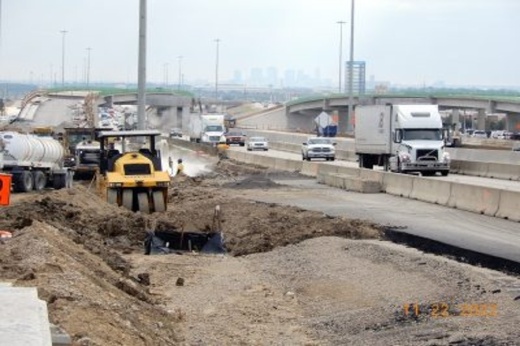Elected officials, transportation engineers and municipal representatives from across Tarrant County came together for the summit, and there were two words that kept coming up when they thought about mobility in North Texas: economic development.
“Nearly $1 billion in infrastructure improvements makes Tarrant County ground zero in Texas and in this country for economic development,” County Judge Tim O’Hare said.
Presenters came from across the transportation spectrum to share their expertise on issues, such as intermodal supply chain issues, how the 2021 bond election and the federal infrastructure bill will accelerate the development of important area road projects, and how recent investments in regional airports will pave the way for a world where planes share airspace with delivery drones and air taxis.
But no matter the topic, every panel highlighted the need for Tarrant County transportation systems to continue to support economic growth.
“Tarrant County is the fifth-fastest-growing county in the United States with 41 municipalities,” Tarrant County Administrator G.K. Maenius said. “We're moving at such a quick pace here in this county with so many new residents coming into the county and so much new industry coming into the county that it's absolutely imperative that we look at transportation.”
Robert Poole, director of transportation policy at Reason Foundation, acknowledged the challenges Tarrant County and many other urban regions are facing across the nation when it comes to building the necessary transportation infrastructure to support economic growth. He mentioned, with more electric vehicles on the road and traditional gas-powered cars getting better gas mileage, there is less money available from taxes associated with the purchase of gasoline to fund transportation projects. He also gave the audience some practical financing solutions during his keynote address.
“The Reason Foundation is helping states to figure out how to replace this [money] over the next 20 years or so with probably a per-mile charge. That would be independent of the type of propulsion,” Poole said.
While per mile tolls help fill the gasoline tax gap to pay for existing roads and maintenance, there is also the problem of getting large transportation projects started. Poole mentioned the solution there is public-private partnerships.
“There's a lot of unfunded needs in every state and Texas. Because it's growing so fast and it’s so large, it has big, unfunded needs,” he said. “The advantages of the public-private partnership revenue model really are that it guarantees you to finance these big projects up front. So you get a build when you need it, not 10 or 20 years from now.”
Another discussion was using private money for a public project and how it frees up public money for other Texas Department of Transportation projects.
“Using public-private partnership funds for projects could save TxDOT $6.5 billion near-term to spend elsewhere in the state,” Poole said.





